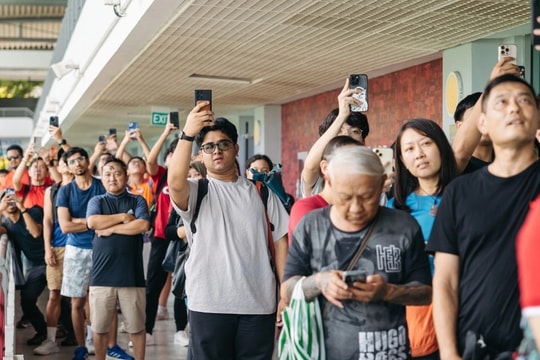
According to the State Bank of Vietnam (SBV) statistics, more than 13 million customers have completed facial biometric verification in online transactions over the first two days following the implementation of Decision No.2345/2023. Transactions valued above VND10 million accounted for 8.24 percent of the total transactions during this period. Banks are actively addressing any transactional issues, including those related to NFC scanning, to ensure a smooth customer experience.
SBV emphasized that requiring facial biometric verification for transactions exceeding VND10 million will not disrupt the transaction process for customers. These high-value transactions constitute only 11 percent of total transactions. In many cases, individuals make multiple transactions, resulting in fewer than 10 percent of individuals transacting at this limit. Less than 1 percent of customers engage in transactions exceeding VND20 million per day. Moreover, approximately 70 percent of individual customer payment transactions in Vietnam are valued at less than VND1 million.
Mr. Pham Anh Tuan, Head of the SBV’s Department of Payment, highlighted the significant financial, material, and human resources required by credit institutions and payment intermediaries to implement Decision 2345. Despite these challenges, institutions are committed to minimizing fraud risks and ensuring the security of customer payments as part of their social and community responsibilities.
Mr. Nguyen Duc Lenh, Deputy Director of the SBV-HCMC Branch, highlighted that implementing biometric authentication in online transactions is a technical solution, aimed at strengthening security in online and card payments. A crucial task for financial institutions is to update and securely manage customers' biometric data, ensuring alignment with national population databases and information from chip-based citizen ID cards or electronic identification accounts.
This technology-driven task is facilitated through software and banking applications, making it relatively accessible for customers familiar with online banking services. Customers can update their biometric data with the help of interactive and visually clear guides, including detailed instructions (via video, images, or textual guides) provided by banks.
However, practical challenges have also surfaced, such as customers lacking chip-based citizen IDs, phones without NFC functionality, network congestion, or systems unable to recognize customers. These issues often cause certain discomforts for customers when engaging in new activities.
To facilitate customers in becoming accustomed to and efficiently completing biometric authentication for online payments, Lenh recommends that alongside ongoing improvements in service quality, financial institutions should intensify their efforts in information dissemination and provide clear guidance and support, particularly in promptly addressing and resolving any difficulties or issues that arise.






















